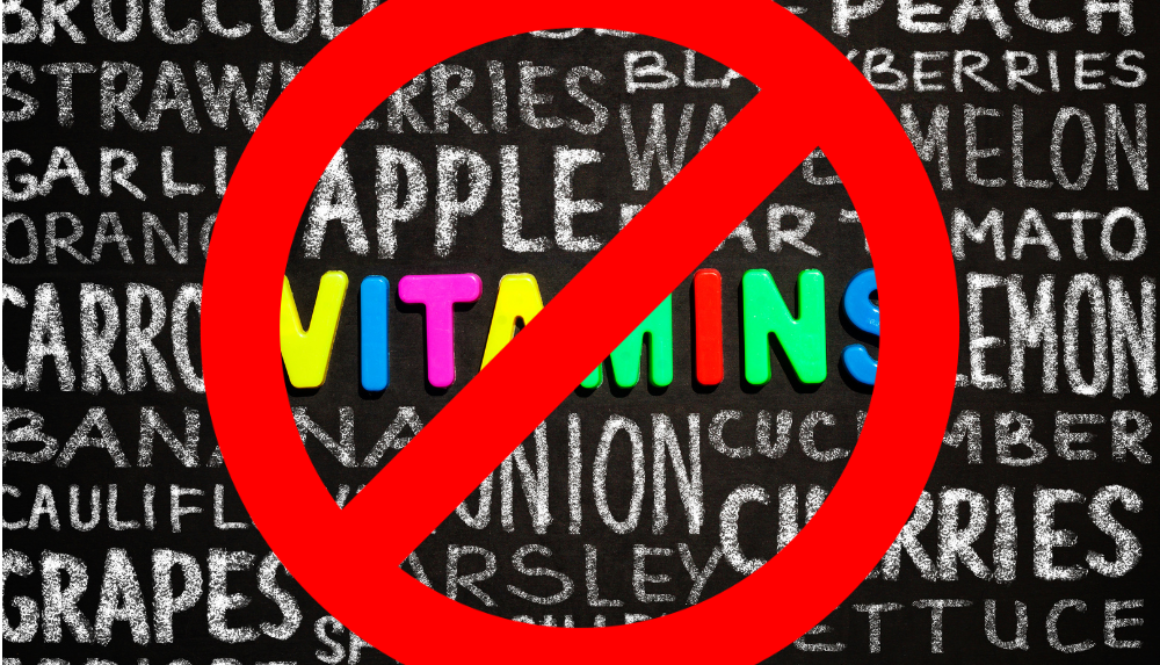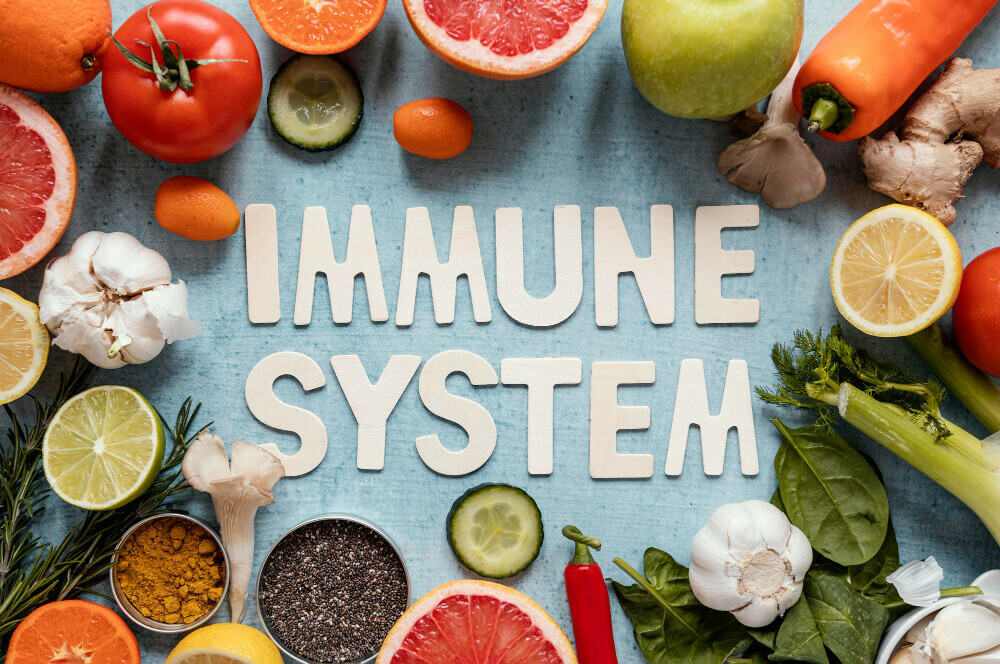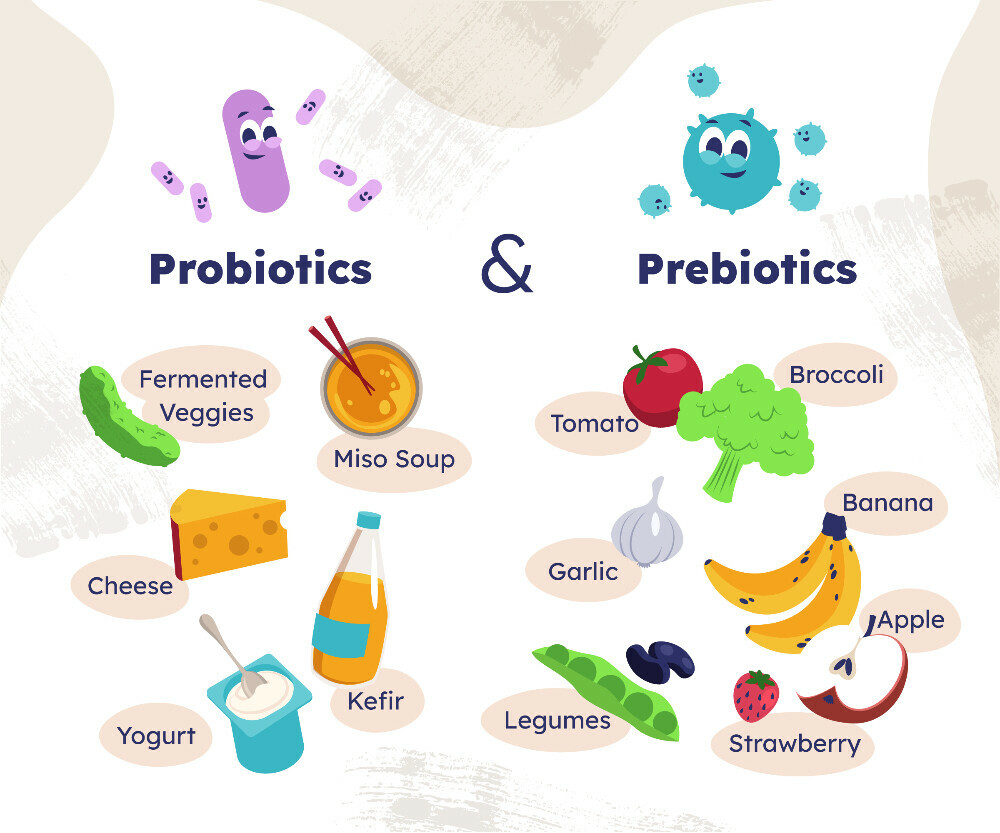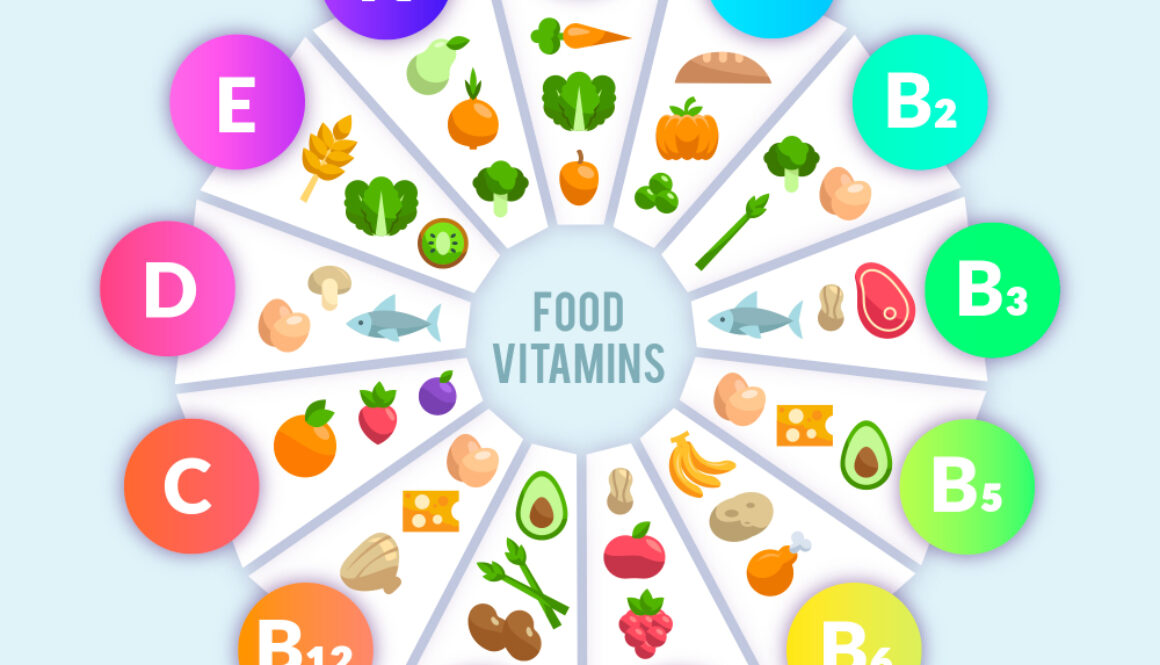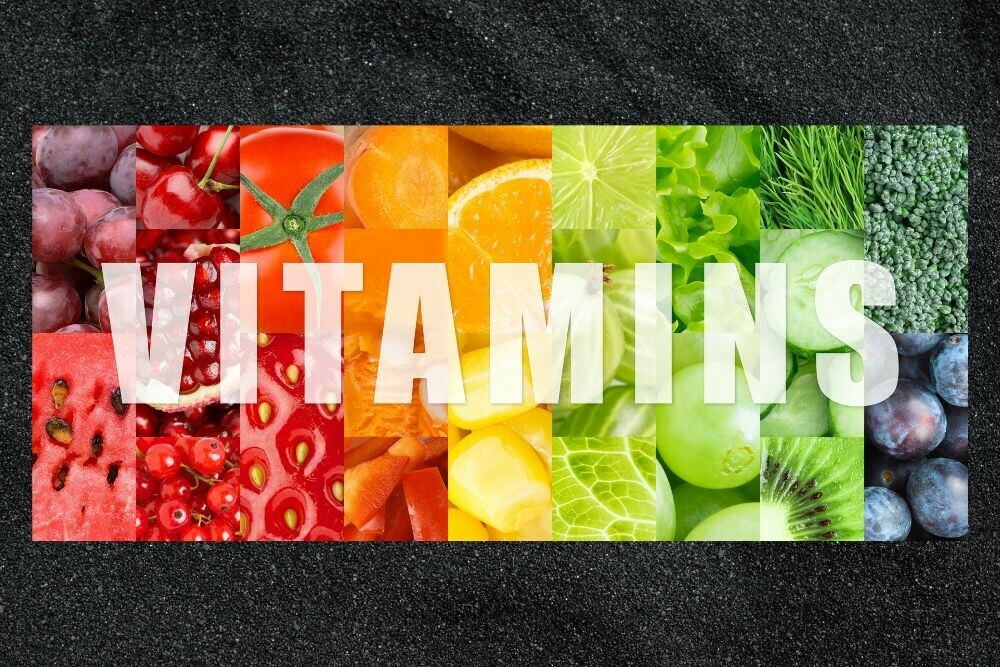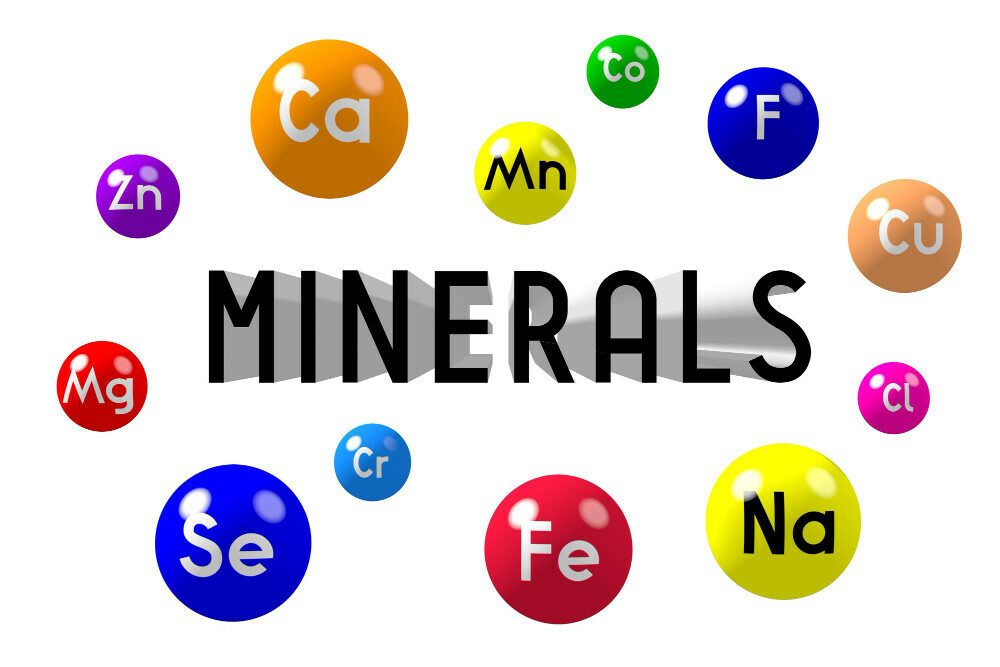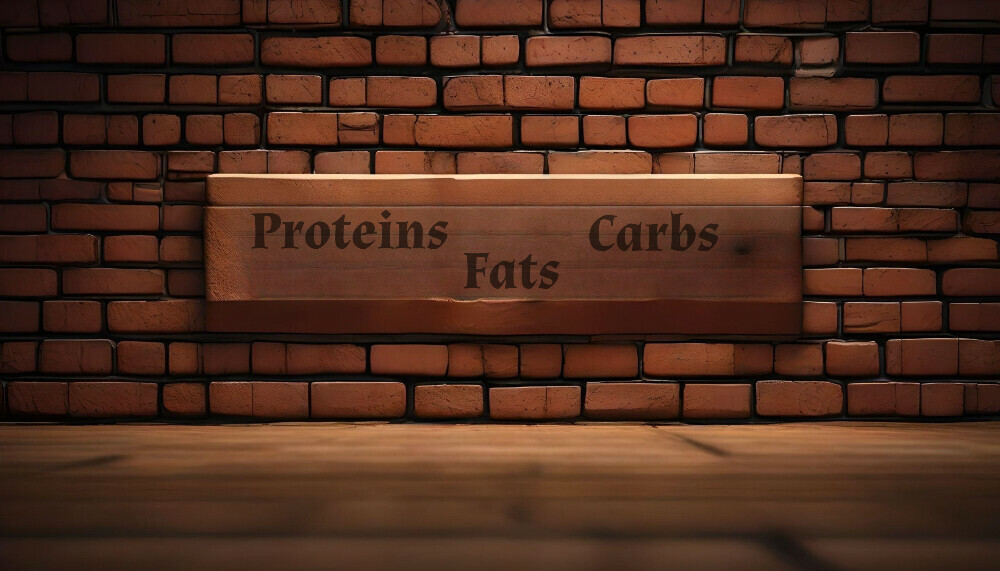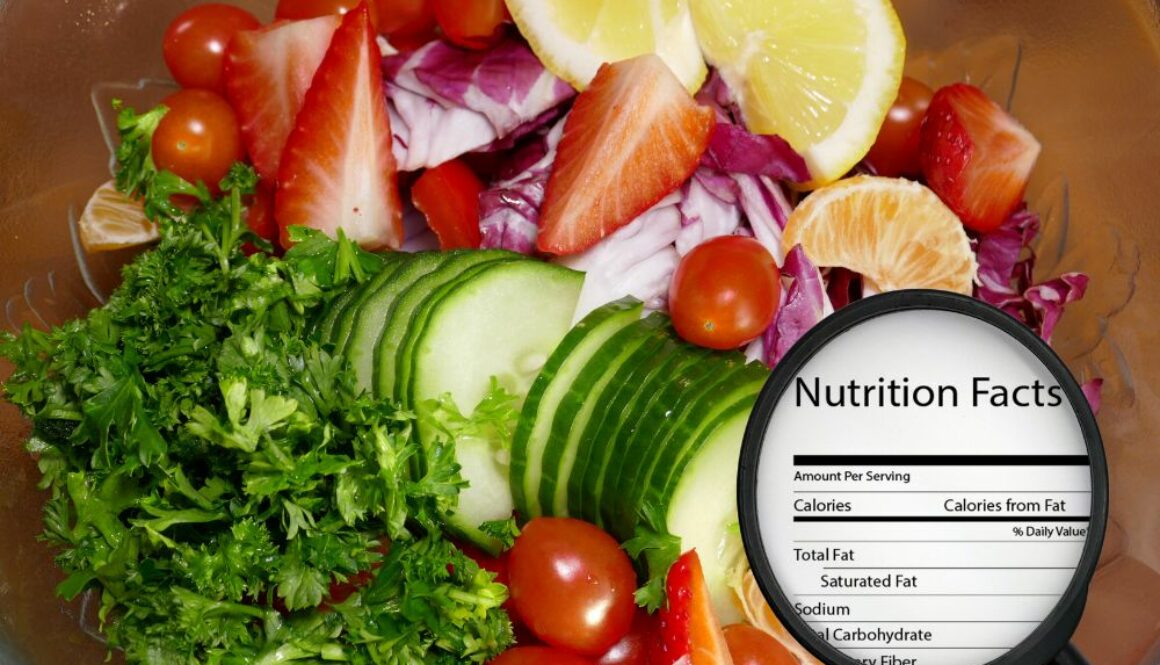The 7 Main Nutrients – Why Are They Important For Our Bodies
Our bodies are complex systems that require a constant supply of nutrients to function optimally. These nutrients come from our food and are the vital components our bodies need to perform many biological tasks. There are 7 main nutrients, protein, carbohydrates, vitamins, minerals, fats, fibre and water. From converting food into energy to repairing cellular damage, nutrients are the foundation of health and well-being.
A balanced diet provides a range of nutrients, each with its role in maintaining bodily functions. Without these essential nutrients, our bodies could not perform day-to-day activities, let alone support the more complex processes like growth, development, and disease prevention.

In this article, I will walk you through the seven principal nutrients – the pillars of a healthy body. By understanding what these nutrients are and why they’re so important, you can make informed choices about your diet and lifestyle. These choices, in turn, ensure that your body has all it needs to thrive. Let’s proceed to our first vital nutrient, which is none other than protein, a key player in building and repairing the very structure of our bodies.
The Power of Proteins: Building and Repair
I’ve always marvelled at the sheer complexity of the human body, and at the heart of this sophisticated system is protein. Proteins are vital. Without them, our bodies couldn’t operate. These formidable molecules are the foundation for cells and tissues, vital in building muscles, organs, and hormones.
Every movement I make, every beat of my heart, proteins are there, repairing wear and tear, supporting growth, and maintaining my body’s daily functions. Imagine proteins as construction workers constantly remodelling the structure that is our body. They break down old cells and create new ones, ensuring everything runs smoothly.
It’s imperative to incorporate sources of protein in my diet. This essential nutrient comprises lean meats, eggs, dairy, legumes, and nuts. But it’s not just about quantity; the quality of protein I consume matters. I aim for complete proteins containing all nine essential amino acids our bodies can’t synthesize independently.
One sentence stands out when I advise on protein intake: BALANCE. I’m not giving my body what it needs for proper function when I have too little protein. Too much, and I could be putting unnecessary strain on my systems, such as the kidneys. It’s all about finding that sweet spot.
Fats: Not All Are Created Equal
It’s a common misconception that all fats are bad for health. In reality, fats play many essential roles in our bodies, from providing a dense energy source to absorbing specific vitamins and maintaining cell structures. However, not all fats are the same, and understanding the difference between healthy and unhealthy fats is crucial.
Unhealthy fats, such as trans fats and excessive saturated fats, can increase the risk of heart disease and stroke. Highly processed foods, fast foods, and particular animal products are typical sources of trans and saturated fats. On the other hand, healthy fats can protect your heart and support overall health. These include monounsaturated and polyunsaturated fats, which you’ll find in avocados, nuts, seeds, and fatty fish like salmon.
Moreover, fats are indispensable for absorbing vitamins A, D, E, and K, which are fat-soluble. Your body can’t properly absorb these nutrients without adequate dietary fat, regardless of how many vitamin-rich foods you consume. Fats also serve as a protective cushion for your organs and help maintain cell membranes, vital for cellular communication and overall bodily functions.
To incorporate healthy fats into your diet, focus on whole foods, such as adding olive oil to salads, snacking on a handful of almonds, or preparing fish as a source of omega-3 fatty acids. By preferring natural sources over processed options, you can enjoy the benefits of fats without the health risks associated with the unhealthy varieties.
As we shift focus to carbohydrates, the primary fuel for our bodies, remember that no nutrient works in isolation. Balancing your fat intake with the other six nutrients, particularly complex carbohydrates, creates a diet that supports and energizes your body for every task it has to perform.
Carbohydrates: Fueling Your Body’s Engine
You might often hear that carbohydrates are essential for energy, but do you truly understand why they’re such a vital component of your diet? Carbohydrates are like the fuel in your car’s engine; they provide the energy you need to get through the day.
Chemically speaking, carbohydrates consist of sugar molecules. These sugars are the easiest for your body to convert into energy. There are two main types of carbohydrates: simple and complex. Simple carbs break down quickly, offering a rapid energy boost. In contrast, complex carbs provide a slower, more consistent release of energy.
For a healthy diet, it’s crucial to focus on complex carbohydrates. Foods like whole grains, legumes, and vegetables contain these nutrients. In contrast, simple carbohydrates are in sugars and refined grains. An excess of simple carbs can lead to energy spikes and crashes and, over time, can contribute to health issues like obesity and diabetes.
Aiming for a balance in your carbohydrate intake can help keep your energy levels stable. So, while reaching for that doughnut or piece of candy for an immediate surge of energy is tempting, you’re better off choosing a snack that releases energy steadily, like a handful of nuts or an apple.
Understanding how to manage your carbohydrate intake is fundamental. Still, it’s also crucial to remember these nutrients work alongside vitamins—the focus of the next section—to maintain the body’s optimal functioning.
Vitamins: The Micronutrient Catalysts
Our bodies rely on a toolkit of small yet mighty substances called vitamins to perform countless functions. Vital to our health, these organic compounds act like spark plugs that ignite cellular activities and metabolic processes.
Fat-soluble vitamins and water-soluble vitamins are the classifications of vitamins. Fat-soluble vitamins, including A, D, E, and K, are stored in the body’s fatty tissues and liver and are critical for maintaining vision, bolstering the immune system, and ensuring proper blood clotting. You’ll need to replenish water-soluble vitamins daily. Neither the B-complex vitamins nor vitamin C are stored. The body processes them through the urinary tract.
A lack of vitamins can lead to deficiencies, each with particular symptoms. For instance, insufficient vitamin D can result in weak bones. In contrast, a shortage of vitamin C might lead to easy bruising and longer healing times.
It’s not enough to know just about vitamins;
how they work in concert with minerals is pivotal. In the next section, we’ll look at how minerals contribute to the robust framework of our health, just as vitamins are the catalysts for vital reactions within the body.
Minerals: Crucial for Body Framework
If I were to describe minerals in human terms, I’d call them the unsung heroes within our bodies. These elements are like a dedicated workforce, ensuring everything from creating solid bones to transmitting nerve impulses runs as it should.
Minerals have two categories: macrominerals and trace minerals. It helps if you have large amounts of macrominerals, calcium, phosphorus, magnesium, sodium, potassium, chloride, and sulphur. They’re pivotal not just for your skeletal structure but also for muscle function, nerve signalling, and maintaining a healthy balance of fluids in your body.
Then there are trace minerals – iron, manganese, copper, iodine, zinc, cobalt, fluoride, and selenium. These you need in smaller doses, but their impact is no less important. Iron alone is central to blood production, while zinc is critical for immune function and wound healing.
Your body can’t make minerals, so your diet must bridge the gap. Dairy products, leafy greens, nuts, meats, and whole grains are great for macrominerals. Shellfish, red meat, legumes, seeds, and nuts can help meet your trace mineral needs.
Consider, for example, the story of calcium and phosphorus. They team up to give you strong bones and teeth. But they don’t work in isolation. They need the company of vitamins and other minerals. It’s all about balance and variety in your diet to support your body’s mineral demands.
Now, let’s shift focus to another vital nutritional player, without which life would cease to exist. I’m referring to water – the essence of life. Transitioning gracefully into the next section, you’ll see how this profound molecule ties into the grand nutritional tableau.
Water: The Essence of Life
Have you ever wondered about the role of water in the body beyond quenching your thirst? Water is essential for every cell, every tissue, and every organ in your body. It’s involved in nearly every biological process, from transporting nutrients and oxygen to regulating body temperature and flushing out toxins.
Your body loses water continuously through sweat, urine, and even breathing. To prevent dehydration, you must maintain adequate intake. When you don’t drink enough water, your body can’t perform at its best, and you may experience fatigue, headaches, or decreased cognitive functions.
It’s not just about drinking the recommended eight glasses a day. Staying hydrated also involves consuming foods with high water content, such as fruits and vegetables. The idea is to make sure that your daily habits contribute to a state of optimal hydration.
Don’t wait until you’re thirsty to grab a glass of water. Thirst is often a sign that your body is already dehydrated. Make a conscious effort to keep a bottle of water at your desk, in your car, or your bag. Sipping on water throughout the day is critical, rather than chugging large amounts infrequently.
Fibre – the final stop in the 7 Main Nutrients
Imagine for a moment your digestive system at work. It’s a complex machine designed to extract nutrients from your food. Now, introduce dietary fibre into this system; consider it the unsung hero, a crucial component for running your digestive tract smoothly.
Simply put, dietary fibre is the part of plant foods your body can’t digest or absorb. Unlike fats, proteins, or carbohydrates, which your body breaks down and absorbs, fibre passes relatively intact through your stomach, small intestine, and colon and out of your body.
Fiber’s benefits are extensive. It tempts the good bacteria in your gut, offering a feast that helps them thrive. Soluble fibres dissolve in water to form a gel-like substance, which can help lower blood cholesterol and glucose levels. Insoluble fibres don’t dissolve; they bulk up your waste, making bowel movements more regular.
When your digestive system doesn’t get enough fibre, problems like constipation can become your regular, unwanted guests. A high-fiber diet, on the other hand, works to ward off constipation and can lower the risk of developing hemorrhoids.
Fibre’s role is so significant that it also acts as a ‘speed bump’ for digestion, slowing the absorption of other nutrients and ensuring a steady blood sugar level. This property makes it a crucial dietary necessity for those managing diabetes.
Summary: Integrating Nutrients for a Balanced Diet
We’ve journeyed through the essentials of the seven primary nutrients, each playing a distinct role in sustaining and nurturing our bodies. But understanding these components isn’t the endpoint; integrating them in the right proportions is critical for achieving a balanced diet.
A diet honouring the diversity of nutrients ensures that the body functions at its peak. Proteins repair tissues, fats provide energy and support cell growth, carbohydrates fuel the body’s daily activities, vitamins and minerals facilitate crucial biochemical processes, fibre promotes digestive health, and water maintains overall homeostasis.
To put this knowledge into practice, closely examine your current eating habits. Do you consume a variety of foods from all nutrient groups? Are you hydrating enough throughout the day?
Small, consistent changes can lead to significant health benefits. For instance, opt for whole grains over refined ones, incorporate a colourful array of fruits and vegetables into your meals, choose lean proteins, and prefer healthy fats such as avocados and nuts.
Some dietary restrictions or health conditions may require personalized guidance from healthcare professionals who can tailor nutrition advice to individual needs. Never hesitate to seek such expertise.
Prioritize nutrition in your lifestyle choices, and you’ll contribute significantly to your long-term health. A nutrient-rich diet and regular exercise are vital to a vibrant and disease-free life.
Remember: good nutrition is less about strict limitations and more about balance and moderation. The proper nutrients in the right amounts are akin to a symphony—each playing its part to create a harmonious balance for optimal health.
Resources:
Australian Natural Therapists Association
Medicine.Net
https://www.medicinenet.com/what_are_the_7_types_of_nutrition/article.htm











